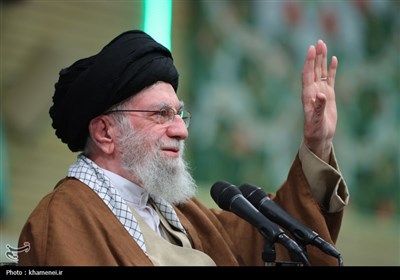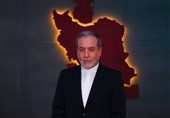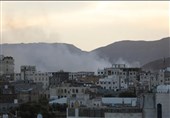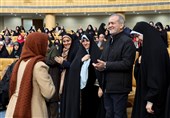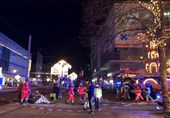Israel Cannot Make ‘Unilateral Decisions about Al-Aqsa Mosque’: UN Rights Expert
TEHRAN (Tasnim) – A UN rights expert said the Israeli regime cannot make “unilateral decisions” about the management of al-Aqsa Mosque in the Old City of Jerusalem (al-Quds), calling on the international community to put a “complete end” to the regime’s occupation of the Palestinian lands.
“…Israel cannot make unilateral decisions about the management of the Haram al-Sharif/Temple Mount. Cooperative decision-making with the Waqf, even in tense circumstances such as this, is a necessity for ensuring better outcomes,” Michael Lynk, the UN Special Rapporteur on situation of human rights in the Palestinian Territory, said in an exclusive interview with the Tasnim News Agency.
He added, “The long-term solution has to be a complete end to the occupation, and a creative solution to Jerusalem that honors the full and equal rights of all Jerusalemites”.
Michael Lynk is Associate Professor at the Faculty of Law, Western University, in London, Ontario. He joined the Faculty in 1999, and has taught courses in labour, human rights, disability, constitutional and administrative law. He served as Associate Dean of the Faculty between 2008-11.
The following is the full text of the interview.
Tasnim: Palestinians had been protesting outside the al-Aqsa compound since Israeli authorities installed metal detectors, turnstiles, and additional security cameras there following a deadly shooting attack more than a week ago. On July 14, three Palestinians opened fire on Israeli forces at the al-Aqsa Mosque compound, killing two of them before being shot dead. Palestinian worshipers had strongly condemned Israel’s new restrictive measures at al-Aqsa Mosque, engaging in bitter clashes with Israeli military forces. A large group of Palestinians were either killed or inured in the clashes. Finally, Israel removed its freshly imposed restrictions on the al-Aqsa Mosque compound in East Jerusalem (al-Quds), prompting Palestinians to begin celebrating early on Thursday. What is your take on the latest developments in the occupied territories?
Lynk: Jerusalem is a Holy City for three major world religions, and it is also a very combustible political issue. Two issues must be kept in mind in understanding the deaths, injuries and protests in Jerusalem over the past week.
The immediate issue goes to the shootings of the two Israeli Border Guards and the subsequent killing of their assailants, and then the closure of the Haram al-Sharif/Temple Mount and the installation by Israel of metal detectors at the entrance to the Al-Aqsa compound against the advice of Shin Bet and the IDF. This very tense period was marked by large protests – much of it peaceful, some of it culminating in violence between Palestinian protesters and Israelis security forces – and the killing by Israeli forces of four young Palestinian protesters and the stabbing deaths of three Israeli civilians by a Palestinian attacker at an Israeli settlement. Eventually, the Israeli government decided to remove the metal detectors, and the immediate crisis has toned down somewhat.
One immediate lesson from this is that Israel cannot make unilateral decisions about the management of the Haram al-Sharif/Temple Mount. Cooperative decision-making with the Waqf, even in tense circumstances such as this, is a necessity for ensuring better outcomes.
The larger issue is the enduring Israeli occupation of east Jerusalem, and its unilateral and illegal annexation of that part of the city. Palestinian Jerusalemites are made to feel like strangers in their own city. They face serious restrictions in their land use and availability, they receive significantly inferior municipal services, they are much poorer than Jewish Jerusalemites, and they are treated as a demographic threat, an alien concept in any modern democracy. The longer the Israeli occupation of east Jerusalem and the rest of the oPt runs – and it already reached the half-century mark in June – the greater are the chances that we will witness more tension and more upheaval in the foreseeable future. Entrenched injustice is always a threat to peace.
Tasnim: The Tel Aviv regime has tried to change the demographic makeup of Jerusalem over the past decades by constructing settlements, destroying historical sites and expelling the local Palestinian population. Palestinians say the Israeli measures are aimed at paving the way for the Judaization of the city. Do you believe so?
Lynk: Palestinian Jerusalemites make up approximately 37 percent of the city’s population. This goes beyond the informal population ratio ceiling of 70:30 (Jewish/Palestinian) that earlier Israeli leaders had wished to see for Jerusalem. So despite the ongoing growth of the Israeli settlement population in east Jerusalem, despite the revocation of residency status for many thousands of Palestinian Jerusalemites and despite the discriminatory conditions that they live in, their sizeable presence in their city endures.
One recent trend that greatly concerns me is Israel’s ongoing construction of the Wall through east Jerusalem in a manner where it is placing a number of Palestinian communities in Jerusalem outside of the Wall. This means that 100,000 Palestinians or more are living in Jerusalem communities that are entirely excluded from Jerusalem municipal services. Their garbage is not picked up, they have no access to police and fire-fighting, their already pitiful infrastructure continues to crumble, and their excluded communities have become enclaves for crime and destitution.
Tasnim: How should the international community and human rights organizations, the UN in particular, respond to Israel’s ongoing violence and killings in the occupied territories?
Lynk: The short-term response has to be calling international attention to the ongoing violations of human rights in Jerusalem and the rest of the oPt, and to state, strongly, that this treatment is unacceptable. The long-term solution has to be a complete end to the occupation, and a creative solution to Jerusalem that honors the full and equal rights of all Jerusalemites.

